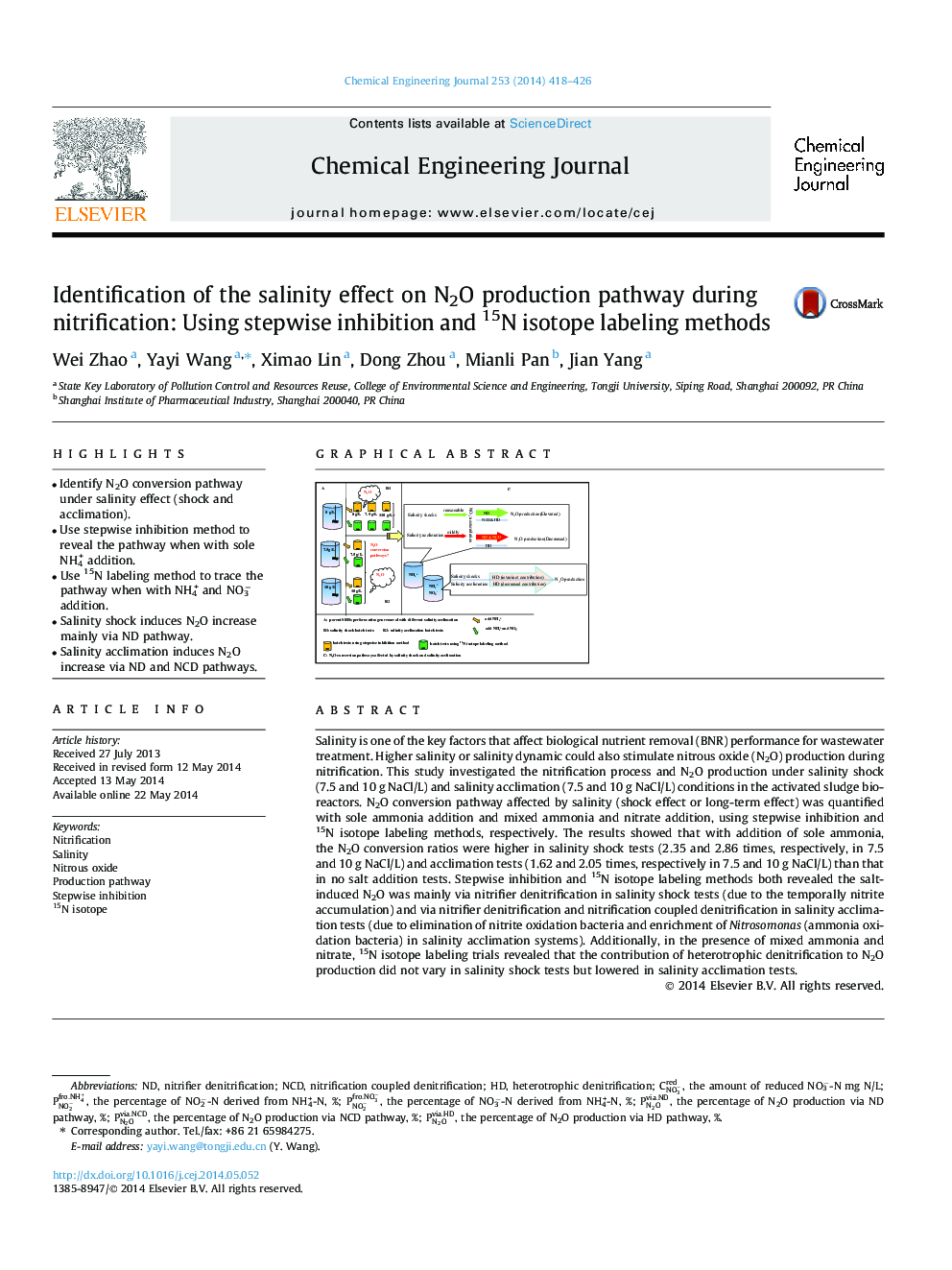| کد مقاله | کد نشریه | سال انتشار | مقاله انگلیسی | نسخه تمام متن |
|---|---|---|---|---|
| 147202 | 456387 | 2014 | 9 صفحه PDF | دانلود رایگان |

• Identify N2O conversion pathway under salinity effect (shock and acclimation).
• Use stepwise inhibition method to reveal the pathway when with sole NH4+ addition.
• Use 15N labeling method to trace the pathway when with NH4+ and NO3− addition.
• Salinity shock induces N2O increase mainly via ND pathway.
• Salinity acclimation induces N2O increase via ND and NCD pathways.
Salinity is one of the key factors that affect biological nutrient removal (BNR) performance for wastewater treatment. Higher salinity or salinity dynamic could also stimulate nitrous oxide (N2O) production during nitrification. This study investigated the nitrification process and N2O production under salinity shock (7.5 and 10 g NaCl/L) and salinity acclimation (7.5 and 10 g NaCl/L) conditions in the activated sludge bioreactors. N2O conversion pathway affected by salinity (shock effect or long-term effect) was quantified with sole ammonia addition and mixed ammonia and nitrate addition, using stepwise inhibition and 15N isotope labeling methods, respectively. The results showed that with addition of sole ammonia, the N2O conversion ratios were higher in salinity shock tests (2.35 and 2.86 times, respectively, in 7.5 and 10 g NaCl/L) and acclimation tests (1.62 and 2.05 times, respectively in 7.5 and 10 g NaCl/L) than that in no salt addition tests. Stepwise inhibition and 15N isotope labeling methods both revealed the salt-induced N2O was mainly via nitrifier denitrification in salinity shock tests (due to the temporally nitrite accumulation) and via nitrifier denitrification and nitrification coupled denitrification in salinity acclimation tests (due to elimination of nitrite oxidation bacteria and enrichment of Nitrosomonas (ammonia oxidation bacteria) in salinity acclimation systems). Additionally, in the presence of mixed ammonia and nitrate, 15N isotope labeling trials revealed that the contribution of heterotrophic denitrification to N2O production did not vary in salinity shock tests but lowered in salinity acclimation tests.
Figure optionsDownload as PowerPoint slide
Journal: Chemical Engineering Journal - Volume 253, 1 October 2014, Pages 418–426